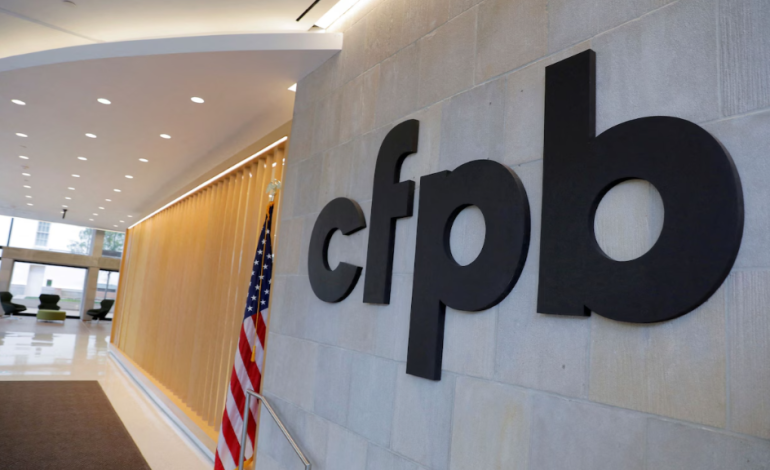The Consumer Financial Protection Bureau (CFPB) is raising alarms about the tactics used by credit card companies to manage customer rewards programs, the Washington Post reports.
The agency claims that some issuers may be engaging in deceptive or illegal practices that deny consumers the points, miles, and other rewards they have rightfully earned.
According to CFPB Director Rohit Chopra, certain credit card issuers play a “shell game” by using misleading marketing to lure consumers into signing up for high-cost cards, only to later devalue or deny the rewards promised. This could put the companies in violation of federal consumer protection laws, the agency warned.
Rewards programs have become a major selling point for credit card companies, with perks like cash back, airline miles, and hotel points enticing consumers to sign up. These incentives are especially crucial for premium credit cards that charge high annual fees. By the end of 2022, 75% of general-purpose credit cards were tied to a rewards system, and the overall value of rewards being offered has surged in recent years, according to the CFPB.
Consumers with higher credit scores have historically been the most frequent holders of rewards cards. However, the fastest growth in reward card ownership is happening among consumers with lower credit scores — a demographic more vulnerable to potentially exploitative practices, according to the agency.
The CFPB has identified several areas where it believes credit card companies may be crossing the line, including:
- Deceptive Advertising: The CFPB alleges that some issuers promote generous sign-up bonuses or ongoing rewards benefits in advertisements, but then bury restrictive terms and conditions in the fine print. If the promotional language conflicts with these disclaimers, the issuer could be in violation of federal consumer protection laws.
- Devaluation of Rewards: Consumers have reported that the number of points or miles required to redeem a specific reward suddenly increases, effectively reducing the value of their earned rewards.
- Unclear or Vague Rules: Some card issuers reportedly change the terms of their rewards programs with little or no notice, or fail to protect consumers from losing points when a rewards program partner (such as a hotel chain or airline) changes its benefits or rules.
- Redemption Barriers: Consumers also face technical issues when trying to redeem their points, such as website glitches or poor customer service that delays access to rewards. In some cases, consumers lose their accumulated points when they close a credit card account.
The CFPB issued formal guidance to law enforcement agencies, highlighting the types of conduct that could potentially violate federal laws. The agency’s warning makes it clear that promotional language must align with the terms and conditions disclosed in the fine print. It also emphasized that vague, unclear, or buried terms about how rewards can be revoked may be illegal.
Credit card issuers could face enforcement actions or lawsuits if they are found to be in violation of the Consumer Financial Protection Act, which prohibits unfair, deceptive, or abusive practices.
The CFPB also released new data on retail credit cards, which operate differently from general-purpose credit cards. Most retail credit cards, which are typically tied to specific stores, offer consumers store-specific discounts, financing options, or loyalty rewards. However, these cards often come with significantly higher interest rates.
According to the CFPB, 90% of retail credit cards had maximum annual percentage rates (APRs) exceeding 30%, compared to only 40% of non-retail cards. Retail cards, which are mostly managed by four major banks, are also subject to consumer complaints about aggressive sales tactics, difficulties in redeeming promotions, and late fees.
The CFPB’s report builds on years of consumer complaints submitted to the agency. Cardholders have reported a variety of issues, including:
- Reward Devaluation: Cardholders said points or miles became less valuable over time, especially when program partners such as airlines or hotels changed their terms.
- Lost Rewards: Some consumers found their points or rewards disappeared when they closed their credit card accounts.
- Customer Service Issues: Consumers also cited difficulties reaching customer service or resolving problems with their rewards accounts.
- Retail Credit Card Tactics: Complaints about retail credit cards included aggressive in-store marketing tactics, higher fees, and complex or unclear redemption rules for rewards and promotional offers.
While the CFPB has not named any specific credit card issuers as targets of enforcement, the agency’s scrutiny could prompt changes in how rewards programs are marketed and managed. Issuers may be required to improve transparency, simplify redemption processes, and better protect consumers from abrupt changes in rewards programs.
Credit card companies have long defended their rewards programs, pointing to the significant benefits they offer consumers, such as cash back, airline miles, and exclusive perks like airport lounge access. However, the CFPB’s findings suggest that some cardholders — especially those with lower credit scores — may not be fully aware of the terms and conditions that govern these rewards.
For consumers looking to protect their rewards, here are some best practices:
- Read the Fine Print: Understand the terms and conditions of a card’s rewards program, including any potential fees or expiration policies.
- Track Redemption Requirements: Keep an eye on how many points or miles are needed for specific rewards, as these thresholds may change.
- Contact Customer Service: If you experience technical issues or lose points, reach out to the card issuer’s customer service and document the interaction.
- Beware of Retail Credit Cards: While store cards may seem attractive due to promotions, be aware of their higher interest rates and stricter redemption terms.









